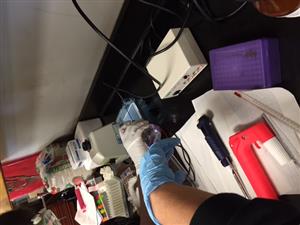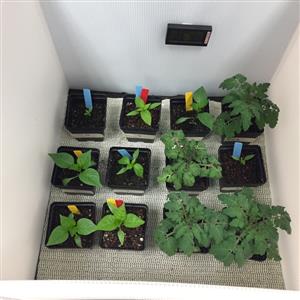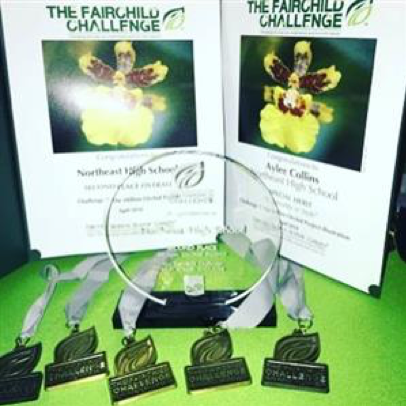- Northeast High
- Magnet Programs
- Industrial Biotechnology
Industrial Biotech
-



INDUSTRIAL BIOTECHNOLOGY is a program offering students science credit through applied science education, to prepare them for entry-level positions in the cutting-edge industry of Biotechnology. The coursework will focus on developing science and bio-technical skills that are current and in demand for this rapidly growing occupation. This program offers a sequence of courses that provides coherent and rigorous content aligned with challenging academic standards and relevant technical knowledge and skills needed to prepare for further education and careers. Biotechnology involves the laboratory protocols in working with DNA, the genetic material of all living organisms, along with RNA and proteins. Applications of this technology are relevant in medicine, pharmaceuticals, biomedical and biological research, agriculture, biofuels, and forensic science. Course sequences are biology 1, Biotechnology 1, 2, and 3, with options of Anatomy & Physiology Honors and/or Experimental Science. A certification exam, B.A.C.E. (Biotechnology Assistant Certification Examination) earns students an industry certificate that enables students to work in a lab (those who have graduated are working in labs at universities while attending). Photos show that our award-winning biotechnology program is involved with people, plants, and sharks! Biotechnology students experience labwork weekly in their courses, but can also get outside and work with the Fairchild Challenge growing NASA veggies and the Million Orchid Project, as well as Pharm4Me. Students have gone shark-tagging with NSU's Guy Harvey Research Institute.
.
-
Fairchild Garden Challenge

Many people only think of plants as stationary objects, but botanists (plant scientists) know plants are always on the move.
Thousands of years ago, a group of sailors ventured eastward in fragile sailing canoes from Asia to colonize what is now Polynesia, an area covering over 16 million square miles of Pacific Ocean. The sailors carried bananas, coconuts, bamboo, and various other plants. With these “canoe plants”, they transformed desert islands into bountiful gardens of food, medicine, and beauty.
This year’s Fairchild Challenge is designed to help you explore the deep connections among plants, human civilization, and the environment. We invite you to imagine yourself as a Polynesian sailor of the past, or as an interplanetary space traveler of the future. Think about which plants you would carry with you on a voyage to a new and distant land. Which plants would you choose to sustain human lives into the future? We invite you to consider the question, “What’s in your canoe?”

